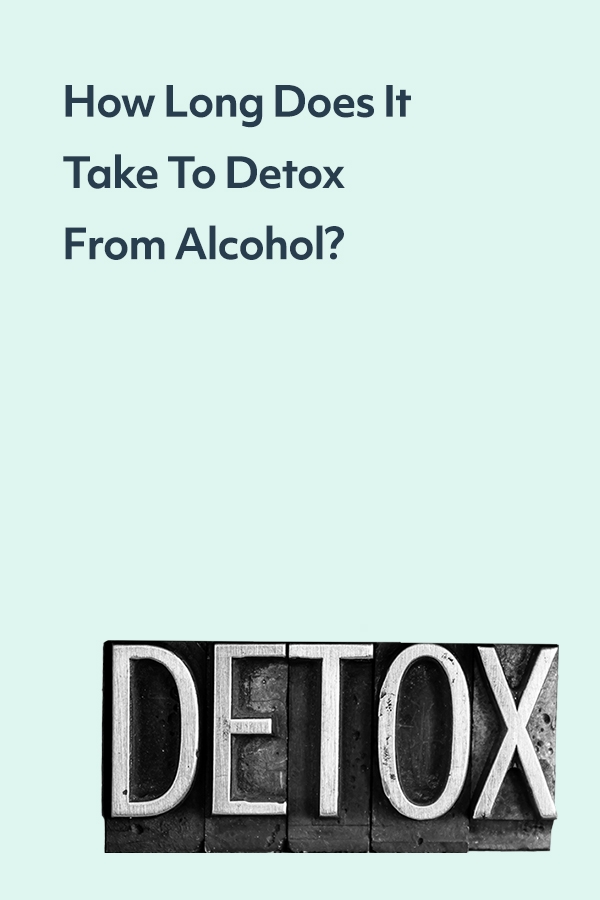For most of us, the road to recovery is filled with a whole bunch of “shoulda, woulda, coulda” thoughts.
“Should’ve stopped drinking sooner,” and “Would’ve asked for help sooner,” or even “Could’ve done things differently.” For me, when it came from detoxing from alcohol, my ‘shoulda’ is this: I should have gone to the hospital.
After 22 years of using and drinking, with the last 6 years chronically drinking, my body had taken a massive beating. Stupidly, I decided to “tough it out” despite having sweats, shakes, nausea, and basically feeling terrible. While I was lying on the floor, shaking, my younger brother asked if I was going to be okay. I said I was fine. After all, “I’m fine” had been my stock answer while I was drinking myself to death, so naturally it would be my go-to even when I actually felt like death from quitting cold turkey. He slept near me that night just to be safe, because I looked about as far from fine as a human could. He later admitted to me that he and the rest of my family had worried I wasn’t going to make it through. Over a decade and a career in recovery later, I now know how dangerous my decision to tough it out truly was. Alcohol withdrawal can cause seizures and even death. I certainly shoulda done things more carefully.
If you’re considering stopping heavily drinking, you may have questions. How long will your detox last and how can you do it without a bunch of shoulda woulda couldas?
Alcohol detox isn’t instant
The first thing to know about alcohol detox is that it’s a longer road than you probably think it is. I’ve seen many newly sober folks feel defeated because they still feel physically and emotionally horrible, even after several days without alcohol. This is incredibly normal, especially considering that the average physical withdrawal from alcohol lasts about 4 to 5 days. Sure, it’ll feel amazing to not wake up hungover for the first day or so, but your body is still pretty freaked out from having the steady stream of alcohol cut off. For the first 6 to 36 hours after the last drink, expect to feel everything from those lovely shakes I mentioned and mild anxiety to heart palpitations and headaches. Remember to be incredibly gentle on yourself in these first days! Avoid stress if possible, and try to avoid shame spirals. After all, no one ever got better by beating themselves up.
Withdrawal symptoms can be serious
The terrifying threat of alcohol withdrawal-related seizures remains very real for about 48 hours. It’s helpful to remember that alcohol and benzo withdrawals are the only types of withdrawal known to actually kill with seizures. In fact, hundreds of deaths occur every year in the United States due to withdrawal-related seizures. If you have a history or family history with seizures, talk to a doctor BEFORE you suddenly stop drinking.
Alcohol hallucinations are another scary withdrawal symptom. These can last up 12 to 48 hours after your last drink. Per MedScape, “As many as 25% of patients with a prolonged history of alcohol abuse have alcoholic hallucinosis.” I remember having some pretty terrifying hallucinations in those first few days. My skin was itchy, and I swore I had bugs on me. It all felt very real and inescapable at the time. The memory of those hallucinations was frightening enough to keep me sober for a few more days. “In the early stage, the patient recognizes frank hallucinations,” MedScape continues, “However, in the advanced stage, these hallucinations are perceived as real and may provoke extreme fear and anxiety. The patient can be seen pulling at imaginary objects, clothing, and sheets, for example.” If your hallucinations start to feel dangerous, reach out to medical professionals.
Lastly, delirium tremens, or the DTs, are common for about 2-3 days, but can stick around for a week. The DTs are the big bad wolf of withdrawal symptoms. They’re severe, and about 5% of folks treated for alcohol detox experience them. They can cause heart attack, stroke, and death. Signs of DTs include: Severe confusion, nervous or angry behavior, extreme hyperactivity, fever, high blood pressure, excessive sweating, and dehydration. Heavy drinkers (men around 15 drinks a week, women 8 drinks a week) are at the highest risk to experience DTs. People with seizures, people who’ve gone through withdrawal before, and adult white males are also in the high risk group for DTs.
Don’t go through it alone
As horrible as all of these withdrawal symptoms are, they can be overcome. They luckily don’t last as long as the dread and shame that go along with actively drinking. Working in peer support on an addiction medicine team here in Portland, Oregon, I’ve seen dozens of folks hospitalized for alcohol detox. Many of them use the time in the hospital to connect with longer term treatment, while others use the detox as a chance to reevaluate their relationships with alcohol. I am lucky to have watched dozens of folks who were brought into the hospital in grave condition walk out the doors healthier, and in a better place to potentially address what brought them there in the first place.
Sober people who’ve been through detox will also share simple detox advice: Drink lots of water, have tummy-friendly meals like soup, and take lots of naps to help with the detox process. In lieu of getting my stupid self to the hospital, those things helped me. Once I stopped feeling horrible, I was able to come up with a plan to stop drinking. That was in January 2009, and I haven’t had a drink since. I could not have gotten through those early days of detox without my family, and my results could have been even worse if I did it alone. The main thing that carried me through my gnarly alcohol withdrawal (and that continues to help me stay sober today) is the love and support of other people. I didn’t have to do it alone and neither do you.










